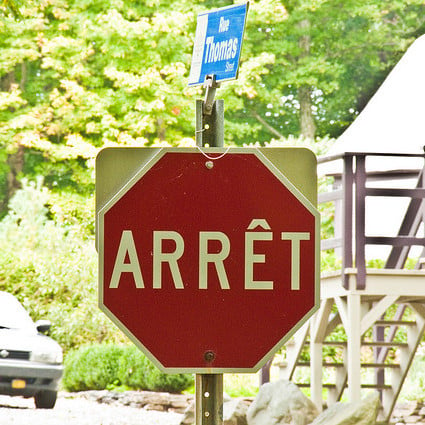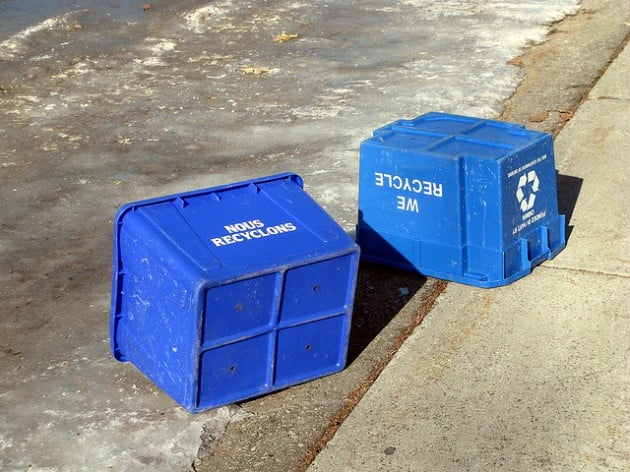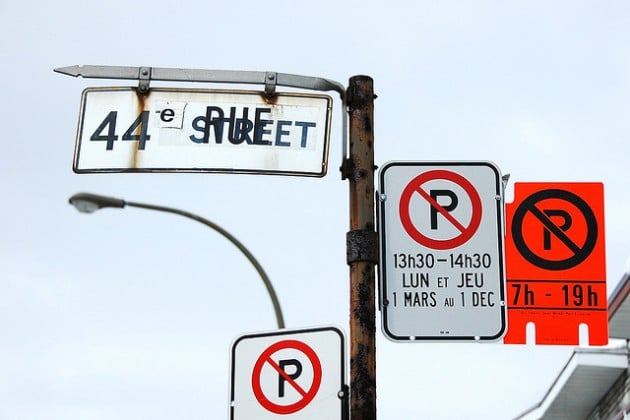Pasta Versus Pâtes: Quebec’s Language Battle
In Quebec, a cultural war between English and French speakers has been raging for decades–will it be resolved anytime soon?
Historically, Canada’s French-speaking citizens have been at the receiving end of a lot of repression. According to Montréal historian Mathieu Noël, as reported by Global News, in the 18th century, a powerful English population began to move into what was then known as New France, clashing with the original colonists.
The colonists’ descendants did not regain power until the 1960s and ‘70s, when the Francophone movement gained momentum. For the past 40 years, the issue of language and culture has been at the forefront of Canadian politics.
The Charter of the French Language’s Bill 101, passed in 1977, mandated that French was to be the predominate language used in Quebec. Although this eased tensions between Anglophone and Francophone Canada, it also drew seemingly meaningless language issues to the forefront of mainstream media.
From an outsider’s perspective, these tensions can be hard to understand. So, what’s the big deal?
French-speaking Canadians are a highly sensitive and outspoken linguistic minority. French Canadians value their traditions, and many believe that it is important to fight back against the increasingly dominant English language, according to NPR.
Immigrant families in North American countries often lose their mother tongues. In an effort to preserve culture, language laws are popping up in Canada, and in countries around the world.
A (Linguistically) Divided Canada
Today, these issues are as relevant–and dramatic–as they were in the ‘70s and ‘80s.
The bitterness of the debate around language issues was exemplified in the ‘Pastagate’ scandal from earlier this year. Quebec’s language laws focus on keeping French the predominant language, even in issues of business or commerce.
As CBC reports, this year, the Office Québécois de la Langue Française placed Italian restaurant Buonanotte under close scrutiny for using the word pasta on their menu instead of the French pâtes.
Diane De Courcy, the Minister of Immigration and Cultural Communities in Quebec, admits that this incident went a little too far. Still, she maintains the belief that Quebec is not a bilingual province, and that French should precedent in all situations. This is an idealistic position, especially in a country where, outside of Quebec, the population of Francophones is only 10%.
If you wonder how you’d fare with the local lingo if you found yourself in Quebec, try our French Level Test. This will let you know how you’re doing, and where to go next if you want to learn more.
Language Laws: A Potential Hazard?
Though Canada’s language laws may seem a little ridiculous, for the most part, they are harmless. Occasionally, however, they get in the way of peoples’ well being.
Consider the case of severe weather warnings. In the US, the most effective way to warn large populations about severe weather is via Twitter. In Canada, however, this is not the case. To comply with Quebec’s language laws, weather service tweets would have to be sent in both French and English.
Automated services with the ability to simultaneously send tweets in different languages don’t yet exist. Currently, the Canadian weather service uses people to manually translate tweets. This has caused information to be delayed.
If there were a tornado in Saskatchewan–a town with a negligible Francophone population–unless two separate warnings were sent out, no warnings would be issued at all.
The language laws may be causing less tangible harm as well. Many Canadian Anglophones feel that Quebec’s language laws are borderline oppressive. According to Time, bill 14, an amendment to the Charter of 1977 being pushed by the Parti Québécois, would strip municipalities where the English-speaking population is less than 50% of their bilingual status, limiting access to official documents in English.
Changes like these make Canada less appealing for English-speaking ex-pats and Canadian Anglophones–many of whom have expressed interest in leaving the country. Francophone laws are supposed to be working to keep a culture alive–but is dividing the country over words like ‘pasta’ worth it?
Are you French Canadian? How do you think you would do if a weather warning came through in English? Try our English Level Test to see how you’re doing and find out how to learn more. Otherwise, Contact Us for information on improving your communication skills in a multilingual Canada.



